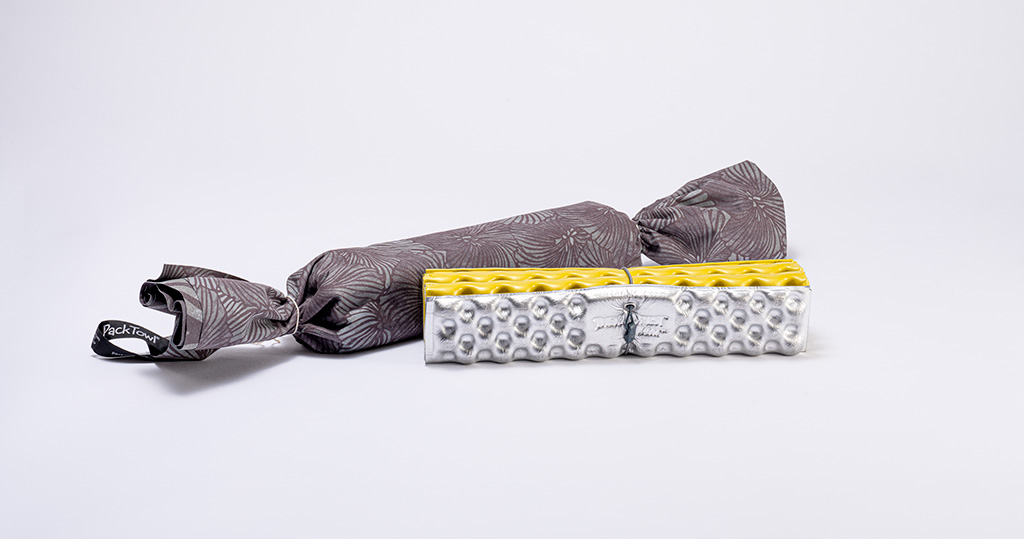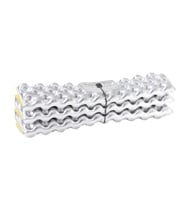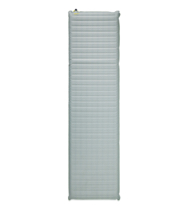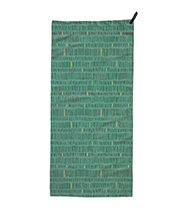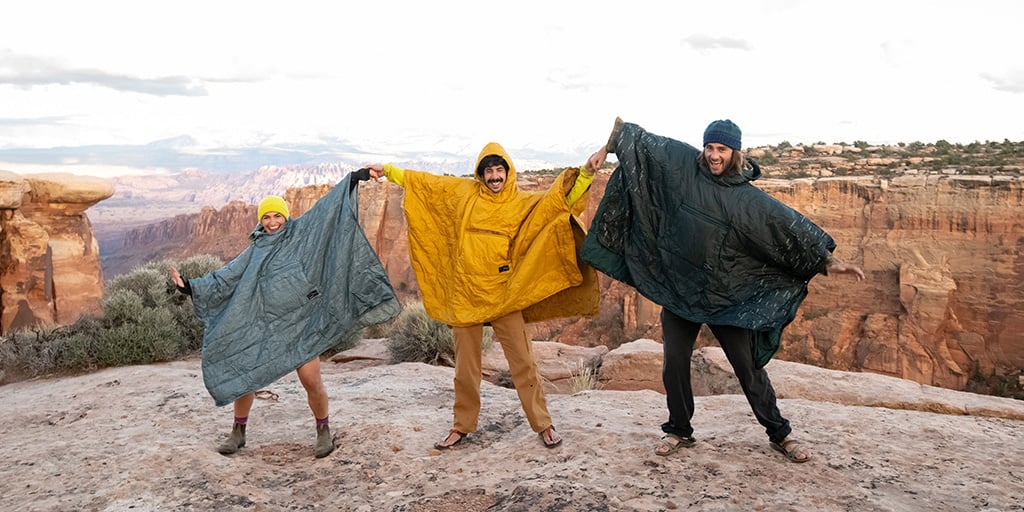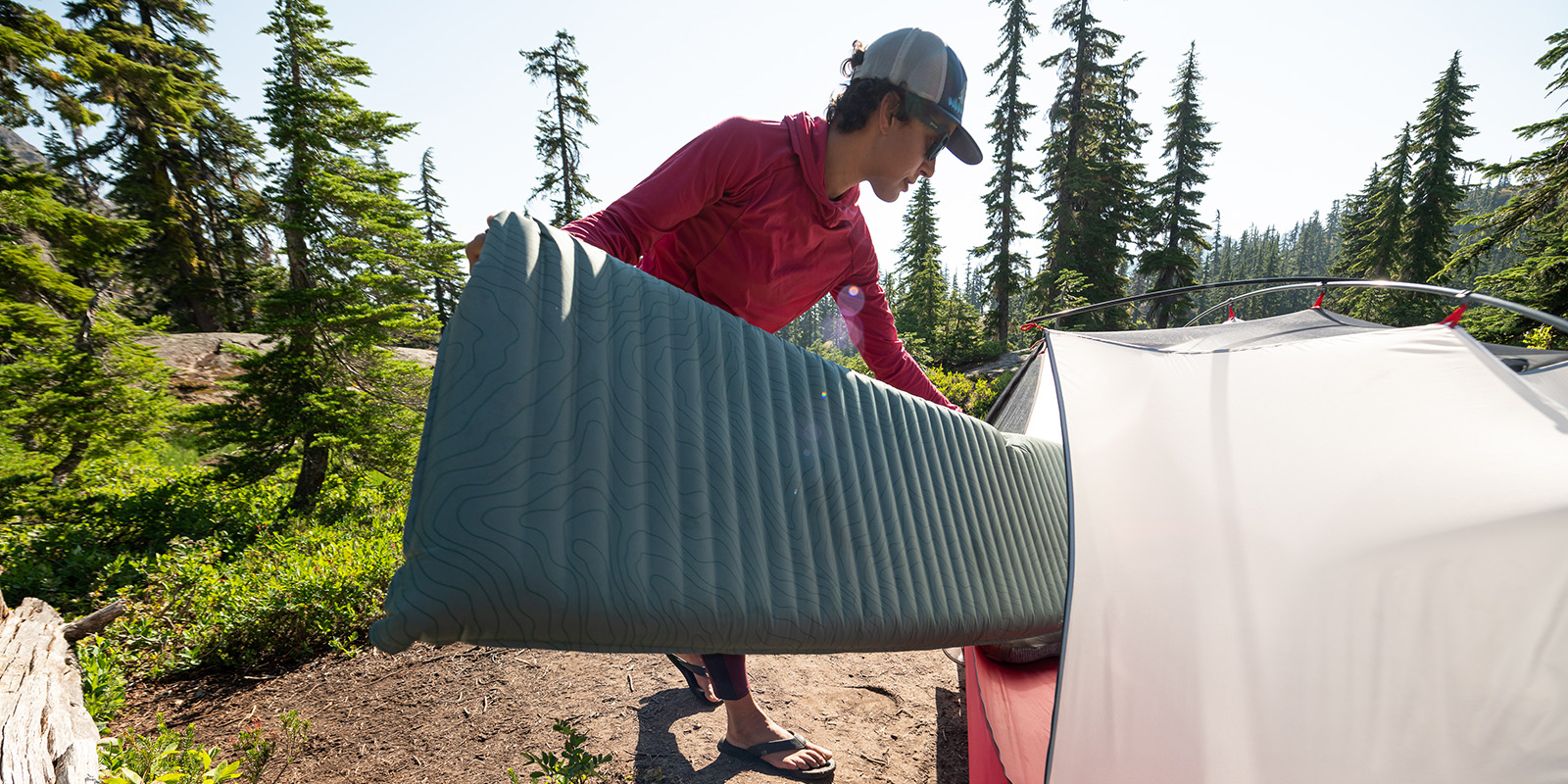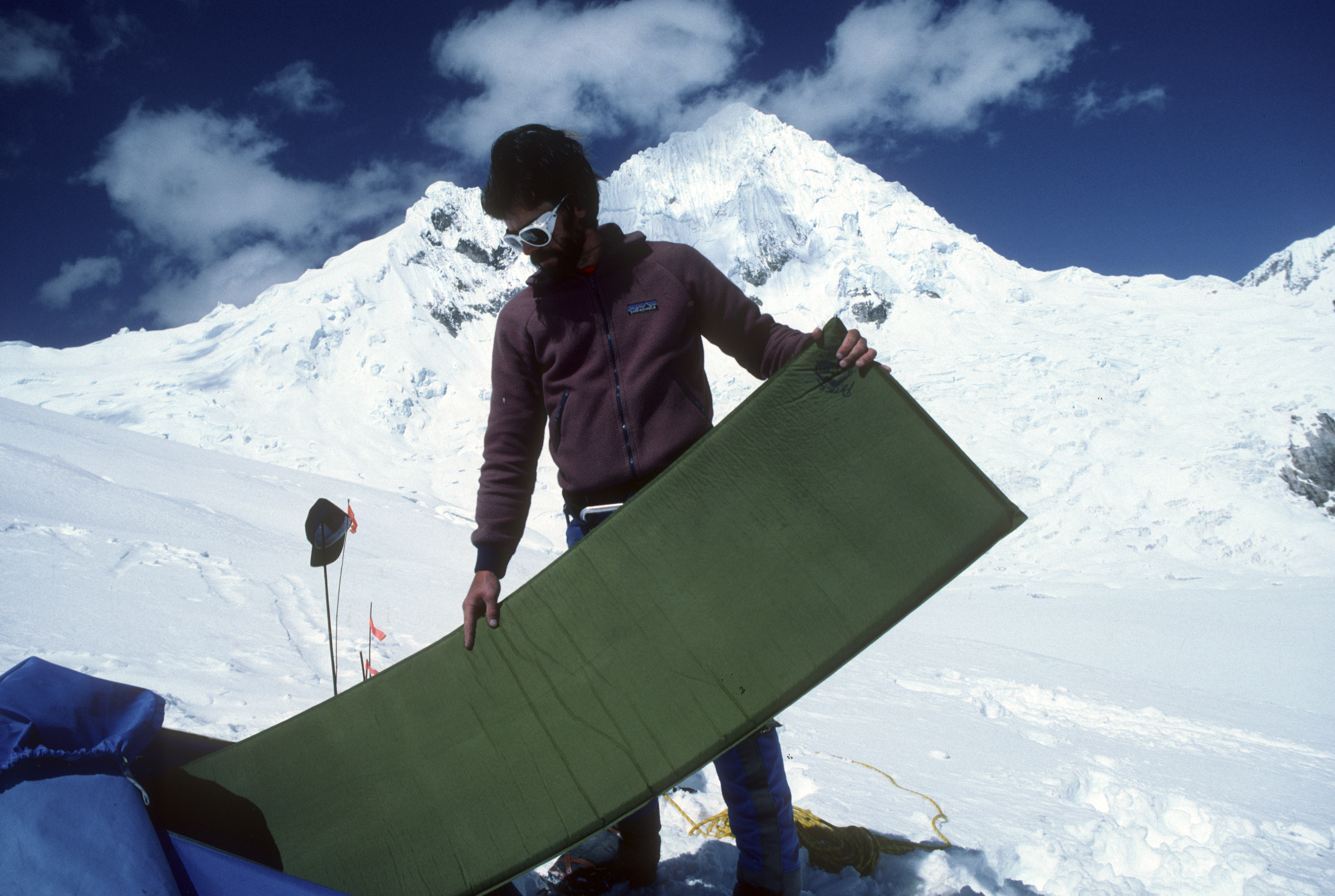What if we wrapped our gifts sustainably? What if the wrapping itself was a part of the gift? What if you could give a more thoughtful gift to your loved ones and give the planet you love some much-needed reprieve? You can, and I’m here to tell you it’s pretty darn easy. Welcome to Furoshiki, the more thoughtful, beautiful, and sustainable way to wrap gifts.
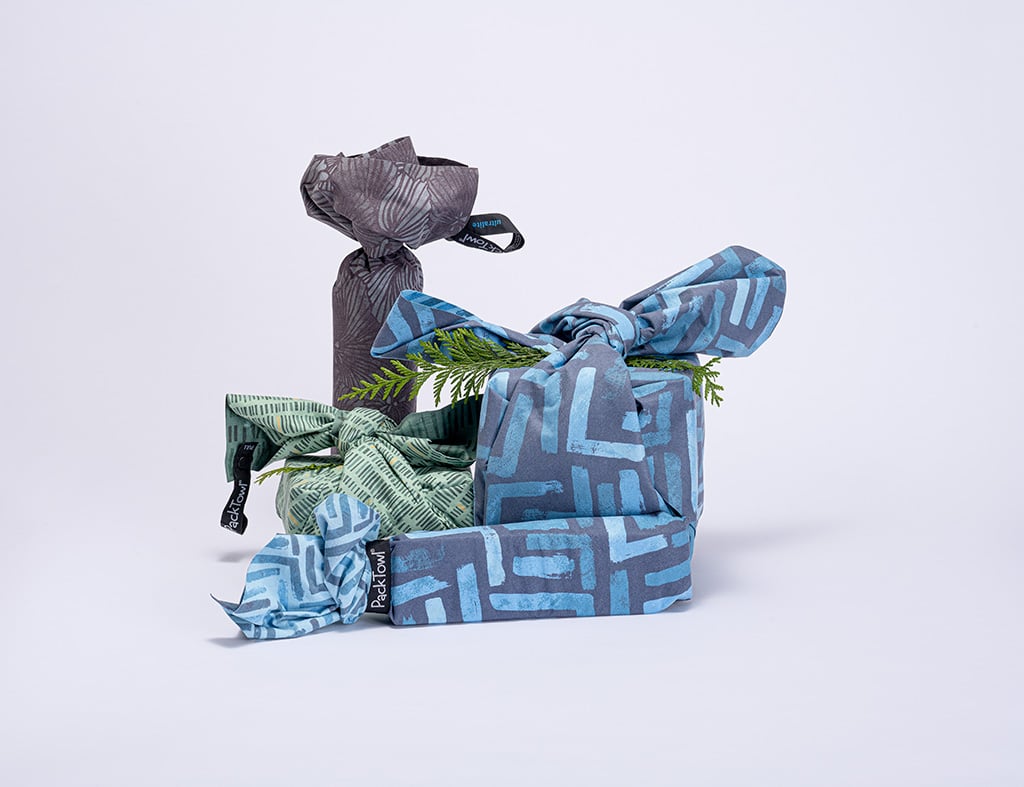
What is Furoshiki?
Most commonly, the term furoshiki is used to refer to the traditional Japanese art of wrapping and presenting gifts in a cloth. However, the term is also a noun that refers to the cloth wrapping used in the method itself. Furoshiki wasn’t exclusively used for gifts either. Wrapping goods, such as food for transport and storage, was a common, everyday application.
It can be hard to imagine using one word to describe wrapping paper or shopping bag and have that same word describe the act of wrapping or putting your groceries in the bag in a specific and deliberate way. But that is exactly what furoshiki is.
This union of object and process evokes the importance the Japanese culture placed on how a gift was wrapped and presented. The wrapping was a critical aspect of the gift itself. Furoshiki were often adorned with beautiful and intricate patterns. It was unheard of, and disrespectful, to unwrap the gift and discard the cloth. Always the cloths were cherished and reused.

Sustainability
Re-use is the key value that furoshiki offers our western culture. Our tradition is not to value the wrapping as much as the gift, and that is okay. However, our gifting culture has a significant propensity for waste.
The holiday period of Thanksgiving to New Years offers millions of people time off work to spend with their loved ones. Sharing meals, exchanging gifts, relaxing and rejuvenating before the calendar turns. Resolutions are made, and we are off to take on a new year. While we relax and rejuvenate, Planet Earth bears the wearisome burden of Americans throwing away 25% more trash, amounting to 25 million tons of garbage. Much of this increase is constituted by single-use wrapping paper that is ceremoniously ripped off a gift and forgotten about—left to the earth to “deal with.”
By using textiles to wrap our gifts— the tradition of furoshiki—we can make a meaningful change in that dark underbelly of our season of joy: excessive waste.
Why Not Just Recycle Wrapping Paper?
When you recycle paper, a collector picks it up and then sells it by the ton to a paper mill to be processed. 70% of recycled paper comes from cardboard. A fraction of recycled paper comes from wrapping paper. The reality is that wrapping paper is so thin and inky it is often more trouble than it is worth to recycle. The high ink content diminishes the yield and creates a sludge that requires more chemicals to treat and dispose of. Despite this, if everybody were to recycle their wrapping paper, it would require considerably less energy to generate the wrapping paper we demand.
Even then, a great deal of wrapping paper is encrusted with glitter and lined with plastics. This wrapping paper is not recyclable. What’s more it results in putting even more microplastics into the environment.
Some single use products are easy to understand why we stubbornly keep using them. The convenience of food packaging is hard to avoid. But wrapping paper? For something that gets torn off and immediately discarded (or into the fireplace if you’re at my parents’ home on Christmas) we are unfortunately habituated to it despite superior and more sustainable options.
Enter PackTowl® and furoshiki. By using an UltraLite towel from PackTowl as a wrapping cloth you will wrap a gift sustainably and adorn your gift in an incredibly useful camp towel. Here’s how.
Furoshiki x PackTowl
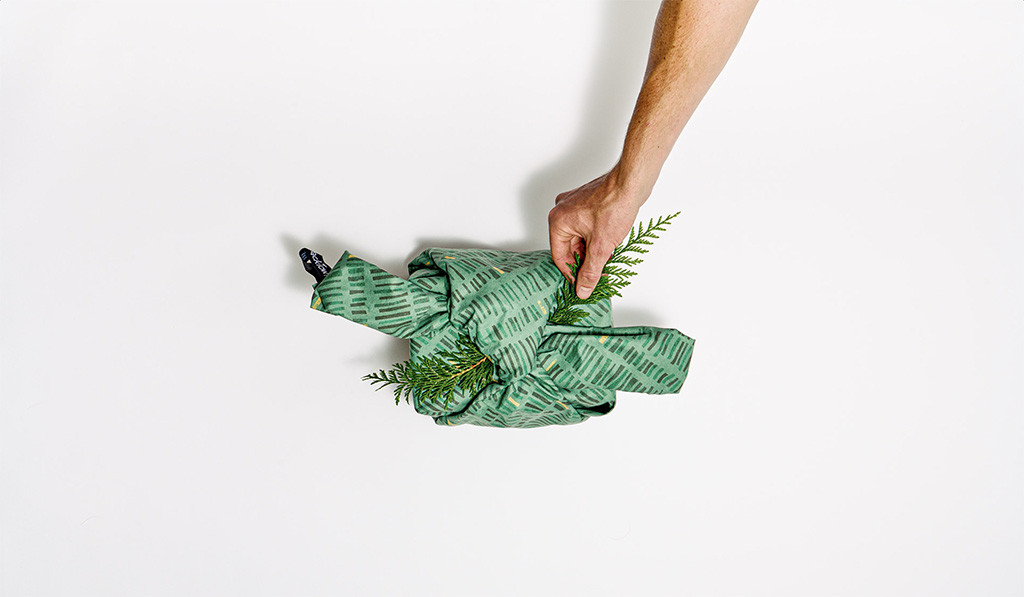
What You’ll Need
- A Gift: Check out our Holiday Gift Guide for some foolproof ideas.
- Furoshiki Fabric: Using an UltraLite Towel from PackTowl is a great option. It is decorative and will be a high-use gift in its own right. Why not wrap a gift for the outdoor lover in your life with a towel they can toss in their backpack and whip out for alpine lake dips next summer? However, any cloth that is large enough and pliable enough to perform the folding steps will do. Scarves, for example, are a readily available and simple choice.
- [Optional] Some Organic Adornment: Dress up your presentation with cedar, pine twigs, holly, or a few sprigs of lavender, rosemary or whatever nearby vegetation inspires you.
How To Do It
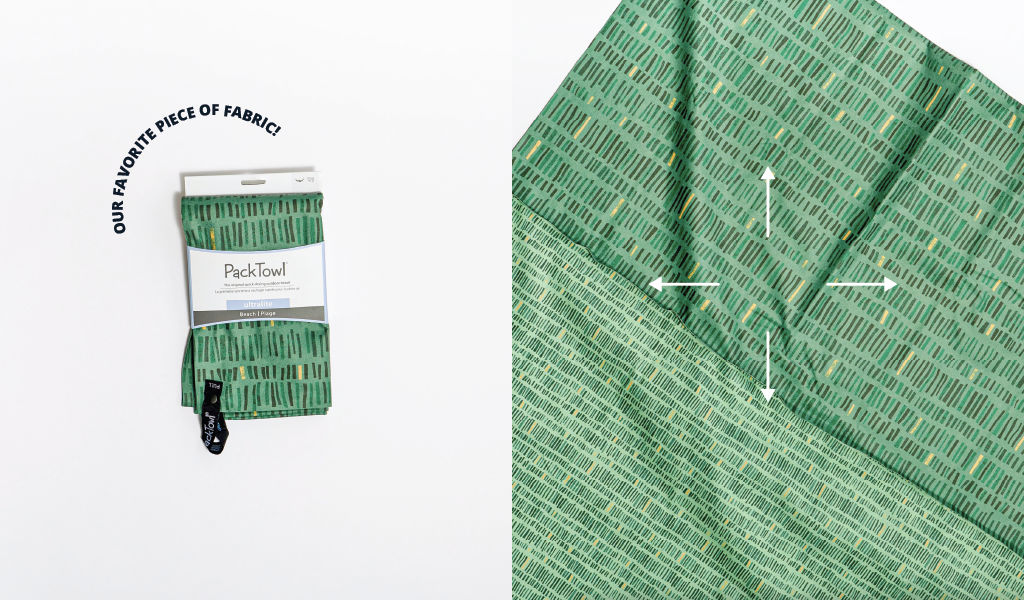
- Start with a piece of fabric. Its diagonal length should be roughly three times the longest edge of the object you are wrapping. You can cut or fold to-length if it’s too big. Get creative! You can sew two pieces of cloth together to make an extravagant double-sided furoshiki. Lay the fabric out flat.
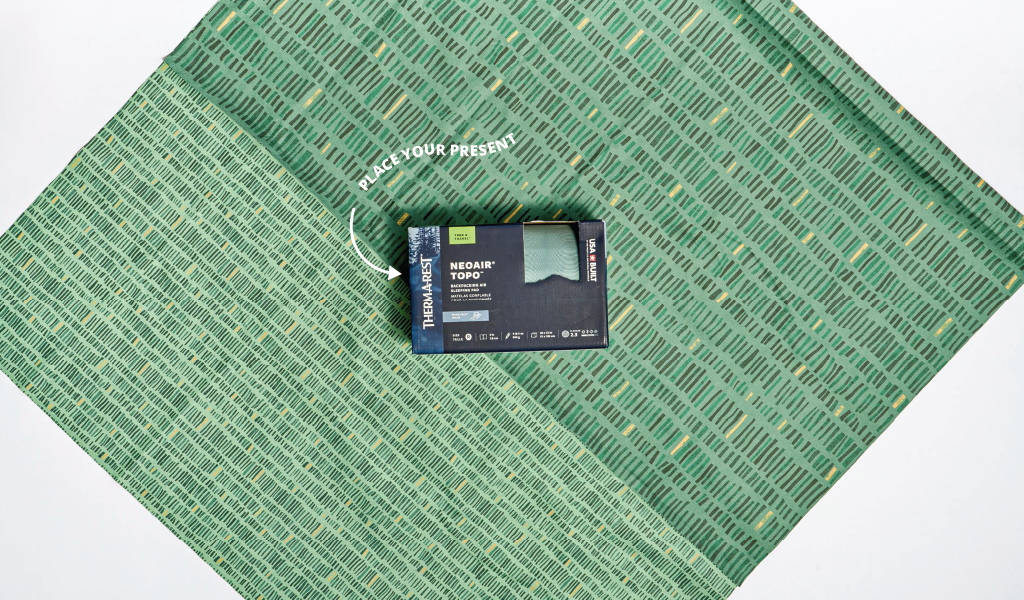
- Place the object in the center of the fabric.
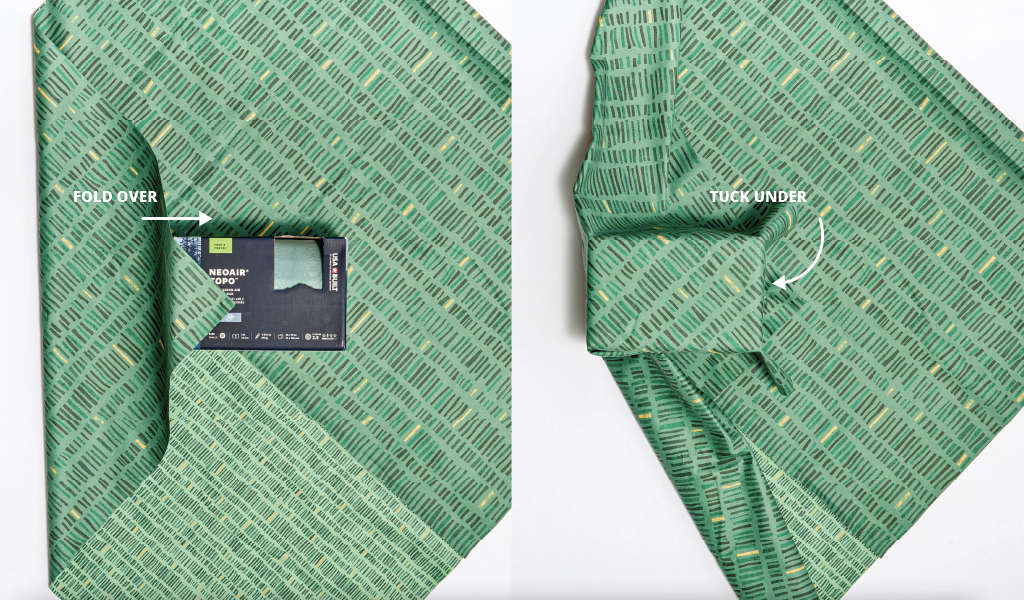
- Pull the top corner down over the object. Tuck it in under the opposite from which you started and around the sides of the object. Make it tight and neat.
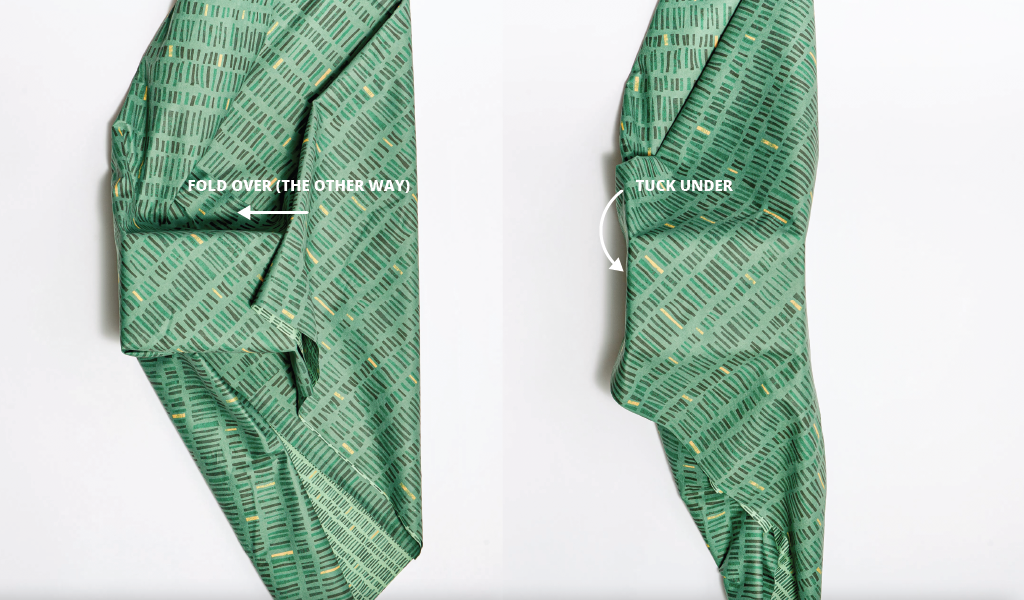
- Repeat step 3 with opposite corner as the one you began with. Again, take care to tuck the sides in creating neat folds around the bottom edge of the object.
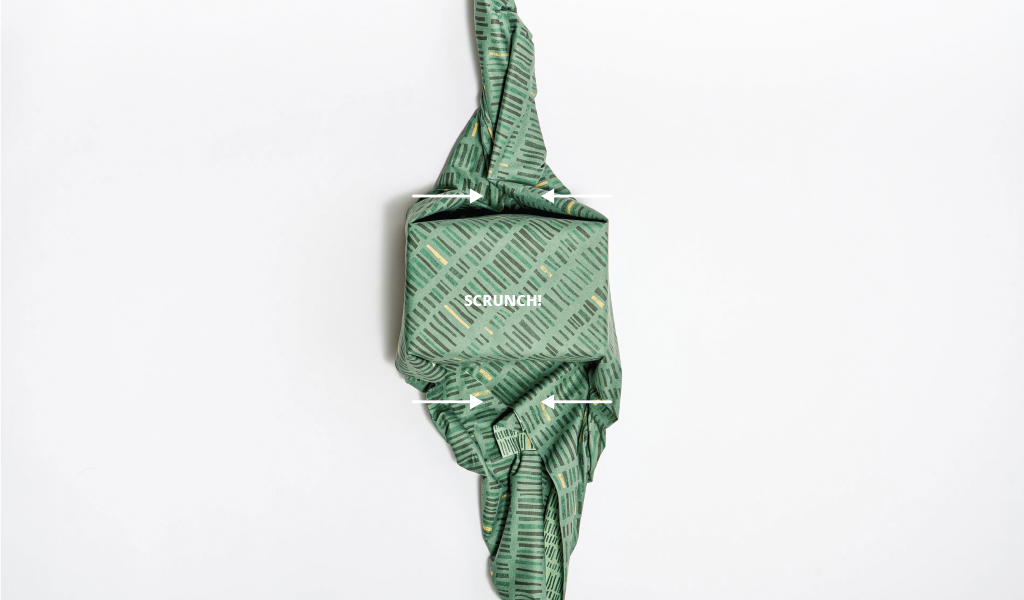
- The remaining two sides should have begun to scrunch up a bit from you tucking in the first two side all around the object. Tidy these up in preparation for folding over and tying off.
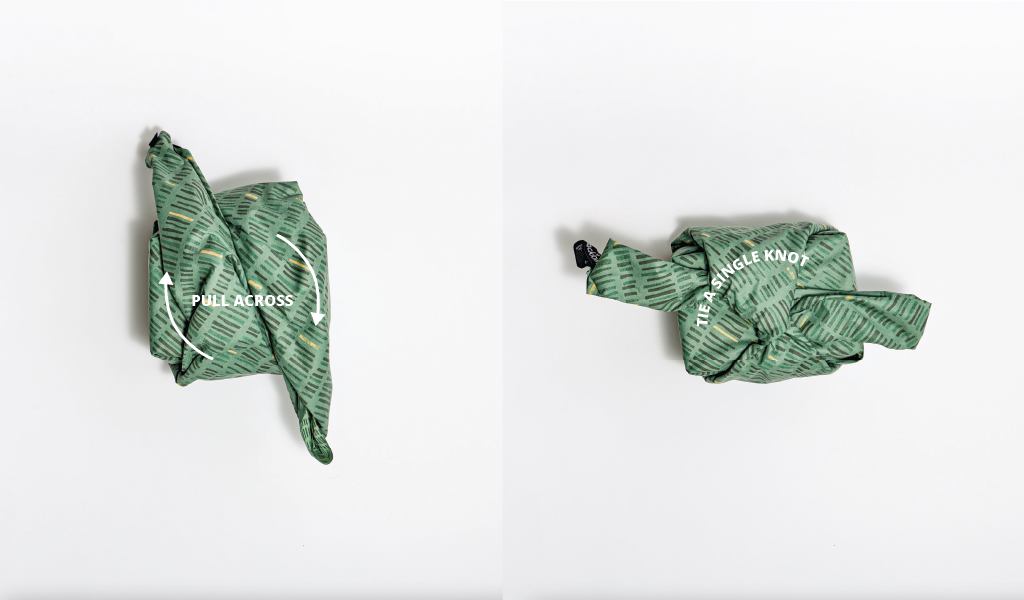
- Pull both remaining ends of the cloth up over the top of the object. They should be pulled all the way over so they are flipped and facing in the opposite direction from which they started. To finish, tie a single overhand knot.
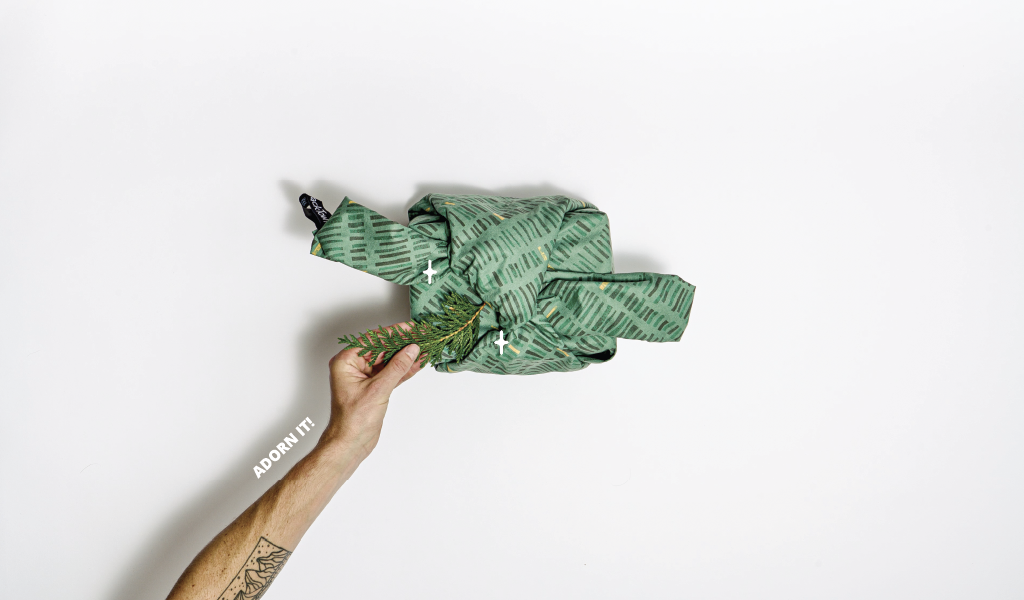
- For added style, lay the bits of organic adornment of your choosing on top of the knot and tie a second knot over them to secure. (Alternative: tie the adornment into the first overhand knot. This is a good way to do it if you don’t have enough fabric for two knots.
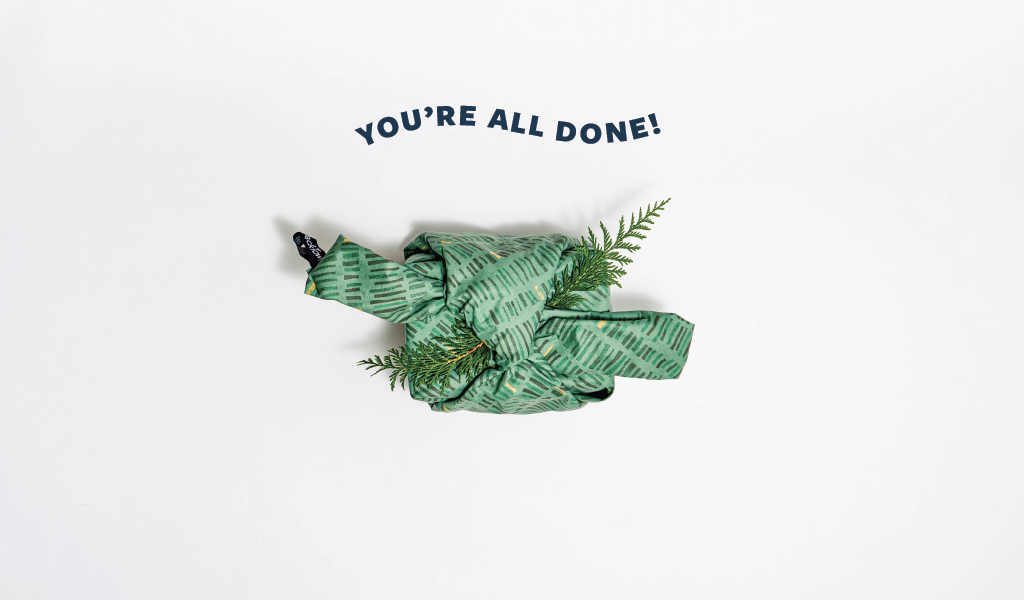
- Fluff and primp the ends to perfection and you’re done!
Furoshiki: Simple, Sustainable & Beautiful
It really is that simple! Buying a roll of wrapping paper may be convenient, but that convenience is heavily outweighed by its impact on the planet. With a bit of extra creativity, care, and effort, your perfect holiday gift can be extra special. And extra useful!
You may have a lot of wrapping to do this holiday season, and finding all that fabric for wrapping may be difficult or expensive. However, if we all did it just a little each year, we’d build a stockpile of reusable fabric wrapping. Alternatively, using the same principles of sustainable creativity, you’d be surprised how many ways we can wrap our gifts more responsibly than with conventional wrapping paper. For example, my mother always saved the comic sections of the newspaper to wrap our birthday gifts.
Let us know what ideas you come up with and what unique ways you practice furoshiki!
Related Posts:
- The Ultimate Guide to Therm-a-Rest Sleeping Pads
- The Ultimate Guide to Sleeping Bags & Quilts
- Camping Pillows: Therm-a-Rest’s Complete Guide
- Camping Blankets: Therm-a-Rest’s Complete Guide
Updated. Originally Published November 8, 2022.
